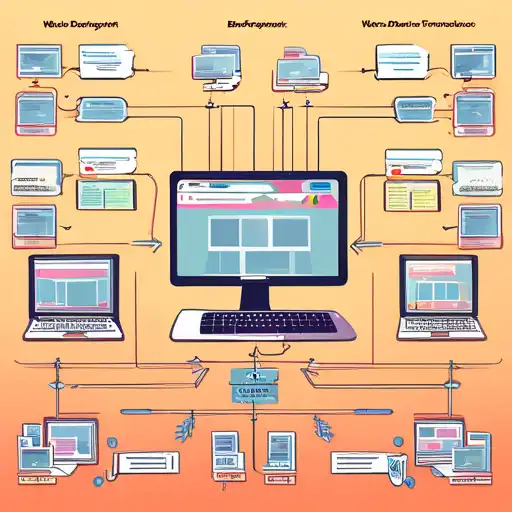Understanding Web Development Frameworks
In the ever-evolving world of web development, choosing the right framework is crucial for building efficient, scalable, and maintainable websites and applications. With a plethora of options available, developers often find themselves at a crossroads, trying to determine which framework best suits their project needs.
Frontend vs. Backend Frameworks
Web development frameworks can broadly be categorized into frontend and backend frameworks. Frontend frameworks, such as React, Angular, and Vue.js, focus on the user interface and user experience aspects of a website. On the other hand, backend frameworks like Django, Ruby on Rails, and Express.js handle server-side operations, database interactions, and application logic.
Factors to Consider When Choosing a Framework
Selecting the right web development framework involves considering several factors:
- Project Requirements: The nature and requirements of your project play a pivotal role in determining the most suitable framework.
- Learning Curve: Some frameworks have a steeper learning curve than others. Consider the team's expertise and the time available for learning.
- Community and Support: A strong community and good documentation can significantly ease the development process.
- Performance: Evaluate the performance benchmarks of the framework to ensure it meets your project's needs.
Popular Web Development Frameworks in 2023
Here’s a look at some of the most popular web development frameworks this year:
- React: A JavaScript library for building user interfaces, known for its virtual DOM feature.
- Angular: A platform and framework for building single-page client applications using HTML and TypeScript.
- Vue.js: An approachable, versatile, and performant JavaScript framework for building UI and single-page applications.
- Django: A high-level Python web framework that encourages rapid development and clean, pragmatic design.
- Ruby on Rails: A server-side web application framework written in Ruby under the MIT License.
Making the Right Choice
Ultimately, the choice of a web development framework depends on the specific needs of your project, your team's skills, and the long-term maintenance considerations. Experimenting with different frameworks on smaller projects can provide valuable insights into their strengths and weaknesses, helping you make an informed decision for larger projects.
Remember, the best framework is the one that aligns with your project goals, team expertise, and future scalability needs. Happy coding!
